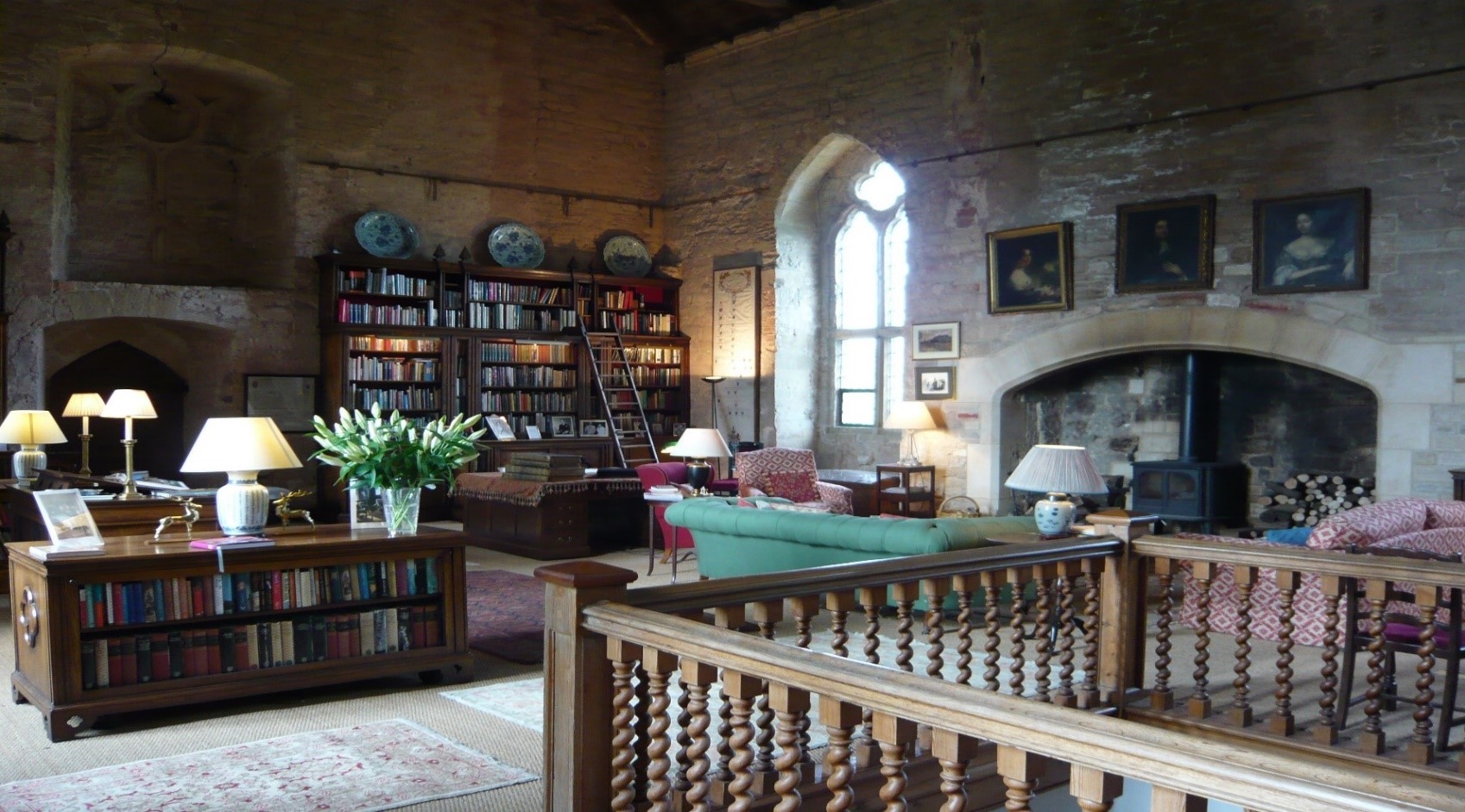|
WHAT IS A HOUSE OF STUDIES? |

House of Studies Library
HOUSES OF STUDY have a long and distinguished history as Catholic intuitions of higher education. The first Houses of Study began in university towns in which university administrators abdicated their responsibilities beyond the classroom. Frequently, students were left unattended, discipline was lax and bacchanalia pervasive. Many poorer scholars were exploited by unscrupulous property owners more interested in rent-raking than justice or charity.
Fortunately, other more virtuous men saw the need to provide formative environments in which students could mature intellectually and spiritually while attending to their academic endeavors. Houses of Study thus began as charitable missions of Dominican and Franciscan Friars who provided off campus housing for needy students and those blest with the wisdom to seek out the company of wise men motivated by divine love rather than profit.
Houses of Study were rapidly established in university towns throughout Europe. Over time, they began to offer their own philosophy and theology courses to supplement courses taken at the universities; eventually many Houses of Study evolved into colleges endowed with their own faculties and curricula associated with the universities.
According to the Catholic Encyclopedia:
“Generous persons, inspired by the spirit of active charity...sought to alleviate the lot of the poor students. The result was the foundation of the "houses of scholars” that later evolved into “colleges”. About 1180 the College of the Eighteen (18 students) was founded; then Saint-Thomas de Louvre (1186), and several others in the first half of the thirteenth century. The most famous of the colleges in Paris was the Sorbonne founded about 1257.”
The Dominicans established a “house of study” at the University of Paris in 1218, the Franciscans 1219, the Benedictines 1229, the Augustinians in 1259. At Oxford the Dominicans opened a house in 1220, the Franciscansfollowed in 1224. Their example was parallelled by the Benedictines, who founded Gloucester Hall and Durham College.
Like the early Medieval Houses of Study, The Kolbe House is devoted to Catholic Higher Education and Spiritual Formation. Unlike the Medieval Houses of Study, the Kolbe House is a modern lay initiative in response to (1) the Church's desire to expand the lay apostolate and (2) the specific call of Vatican II for the laity to respond to the invitation of Christ and the inspiration of the Holy Spirit to form “Centers” of higher education for the work of the social apostolate.
“The most holy council earnestly entreats all the laity in the Lord to answer gladly, nobly, and promptly the more urgent invitation of Christ in this hour and the impulse of the Holy Spirit."
In this regard:
"Centers of documentation and study not only in theology but also in anthropology, psychology, sociology, and methodology should be established for all fields of the (social) apostolate….Laymen should above all learn the principles and conclusions of the social doctrine so as to become capable of working for the development of this doctrine to the best of their ability and of rightly applying these same principles and conclusions to individual cases" (Decree on Apostolate of the Laity.”
In summary, a House of Studies is an institute of higher learning usually devoted to quality education in the Liberal Arts and Humanities. It often includes a program of moral development and a program of cultural activities to supplement its academic programs. Unlike a formal college classroom, Houses of Study are usually more convivial, often times serving wine along with its lectures, seminars and learning activities while promoting fellowship amoung its community of learners who are united by a keen desire to advance in friendship while developing their human potentials by making valuable and proper use of their leisure time to advance in wisdom and appreciation of all that is good and true and beautiful. |



